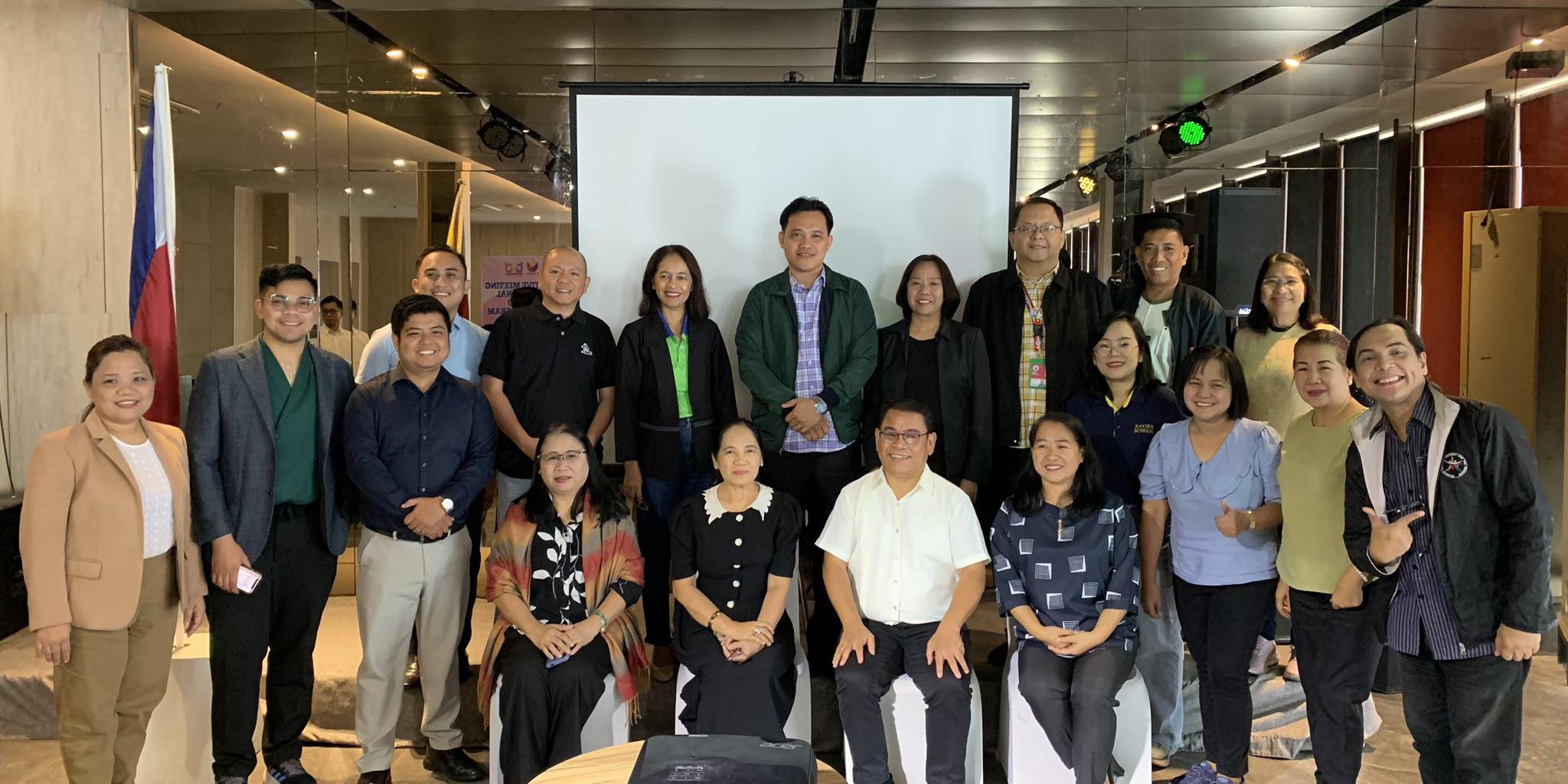In line with the MATATAG Agenda of the Department of Education and the directives laid out in the National Learning Recovery Program, the Bureau of Curriculum Development – Curriculum Standards Development Division (BCD-CSDD) orchestrated a Consultative Meeting for the NSciTP on 22-26 January 2024, at Red Hotel, Cubao, Quezon City.
Through the Coordinating Council of Private Educational Associations (COCOPEA) and Catholic Educational Association of the Philippines (CEAP), Mr. John Michael A. Guerzon of the SLU Basic Education School was invited to participate and deliver a talk on their science program initiatives, which have improved scientific literacy skills among the learners. Mr. Guerzon shared the initiatives of the institution in enriching the Science curriculum in the Junior High School by incorporating elective subjects that are anchored on the needs of Science Research. The institution’s participation serves as a cornerstone, fostering unity and innovation to accelerate the achievement of education targets, enhance numeracy and literacy, and fortify the learning recovery and continuity program of the Department of Education.
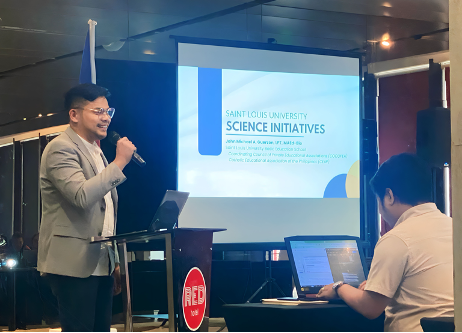
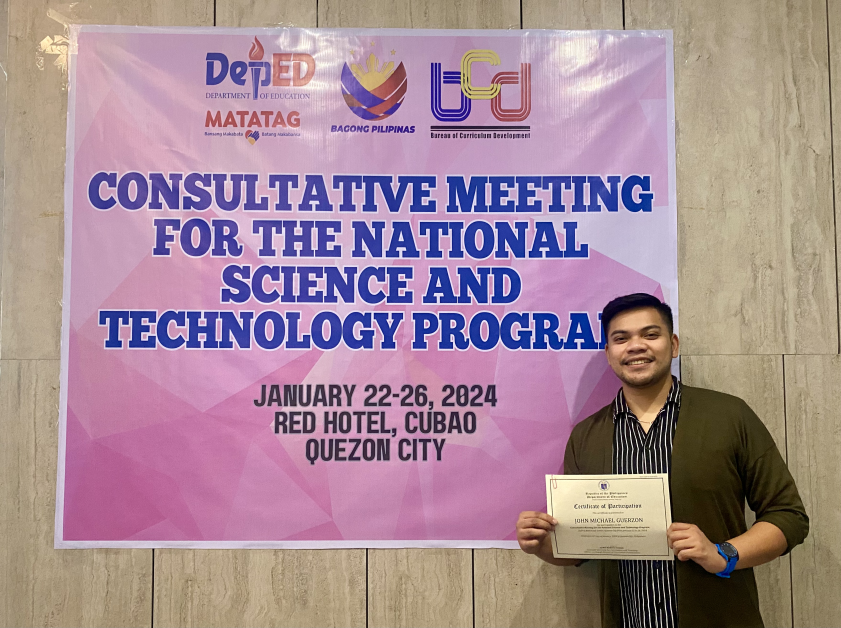
The event sought to formulate the National Science and Technology Program Framework through a series of activities expertly facilitated by esteemed resource speakers. Dr. Sheryl Lyn C. Monterola (UP-NISMED), Dr. Edwehna Elinore S. Paderna (UP-Diliman), and Dr. Crist John M. Pastor (PNU) spearheaded the workshop that culminated in the drafting of the proposed NSciTP Program. The initiative is geared towards advancing the scientific and technological literacy of Grade 4-10 learners in the Philippines, aligning with the implementation of the MATATAG Curriculum.
The engagement of Saint Louis University in this invitation underscored its dedication to delivering quality education that reaches across the entirety of the Philippines. The wisdom of Rev. Fr. Gilbert B. Sales, CICM, the President of SLU, has consistently emphasized that excellence starts at the grassroots level, and the principles of Missio et Excellentia should permeate all university departments, including the Basic Education School. This also exemplifies CICM’s profound commitment to the advocacy of justice. Rooted in the mission to serve communities globally, the activity is related to CICM’s engagement in initiatives aimed at promoting social justice, upholding human rights, and addressing systemic inequalities. By intertwining education with a steadfast pursuit of justice, the activity embodies a holistic approach to community development, empowering individuals not only through knowledge but also by fostering an environment that champions fairness, equity, and human dignity.
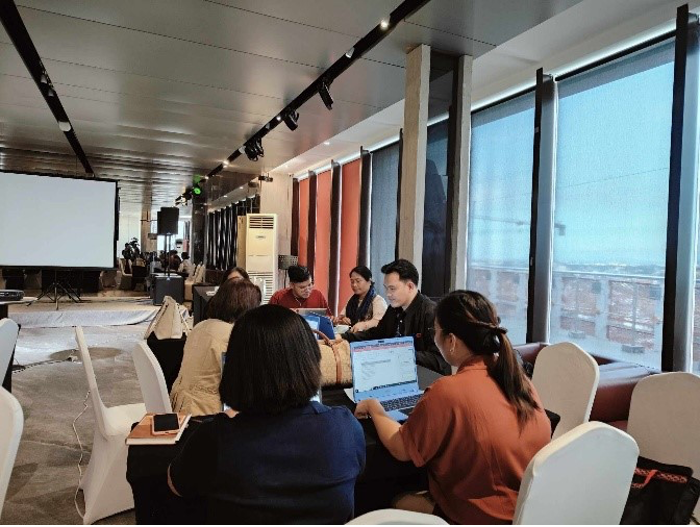
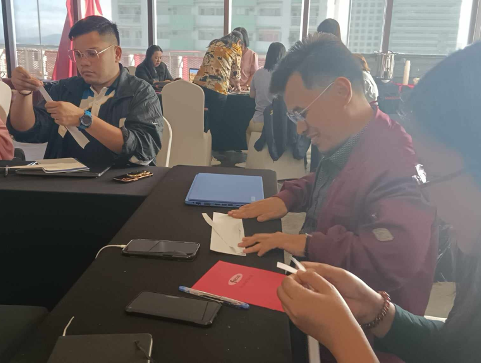
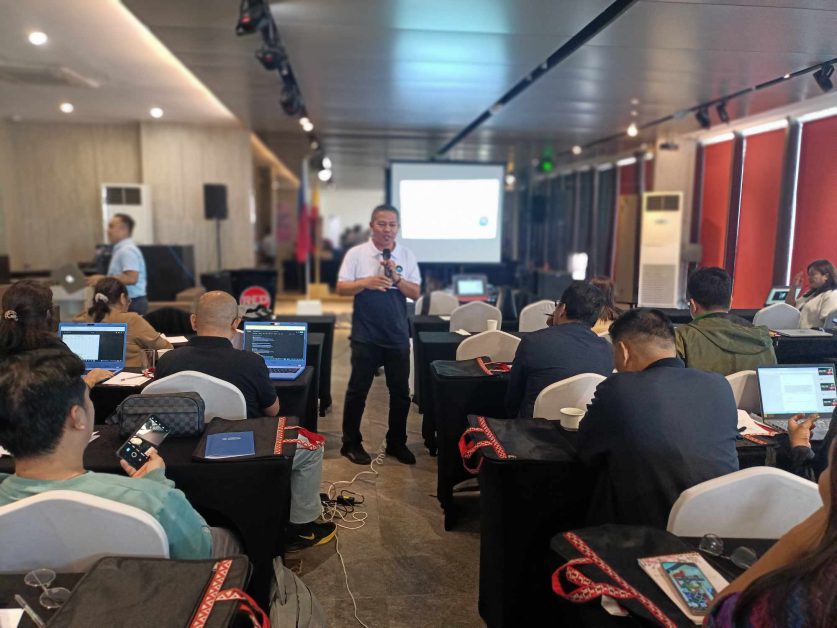
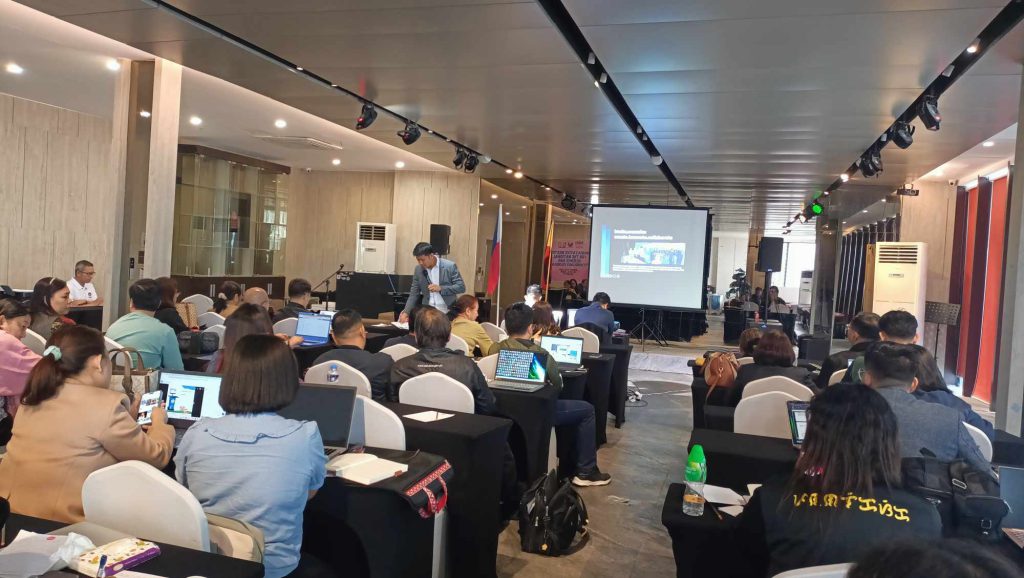
This philosophy and guiding principle align with SDG 4, which strives to guarantee inclusive and equitable quality education while promoting lifelong learning opportunities for all. Through the integration of Science and Technology into community problem-solving endeavors, the university exemplifies its dedication not only to educational excellence (SDG 4) but also to broader global goals of innovation, infrastructure enhancement, and fostering impactful partnerships.
SDG 9 emphasizes industry, innovation, and infrastructure development, where Science and Technology is directly applied, and SDG 17 calls for fostering partnerships to achieve sustainable development objectives. It highlights SLU’s emphasis on the MATATAG Curriculum and its steadfast commitment to elevating educational outcomes in science and technology as a manifestation of the continuous partnership between SLU and the Department of Education. (J.M.A. Guerzon)

